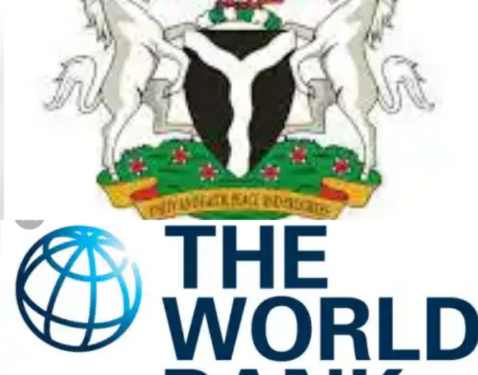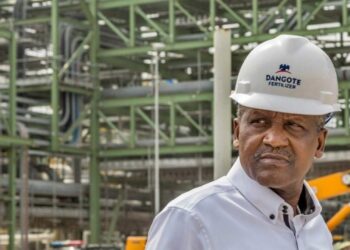The Federal Government of Nigeria is in advanced negotiations with the World Bank to secure over $1 billion in loans aimed at addressing the multifaceted challenges confronting Internally Displaced Persons (IDPs) and enhancing agricultural development across the country.
This ambitious endeavor, reflected in World Bank documents titled ‘Solutions for the Internally Displaced and Host Communities Project’ and ‘Rural Access and Agricultural Marketing Project – Scale Up,’ signals the government’s commitment to improving the lives of vulnerable populations and fostering rural economic growth.
The proposed loans, totaling $1.05 billion, comprise a $500 million allocation for the IDP initiative and a $550 million commitment for the Rural Access and Agricultural Marketing Project.
Highlighting the urgency of the situation, the IDP project aims to provide resilient and inclusive basic services and economic opportunities for IDPs and their host communities in the conflict-affected regions of northern Nigeria. With an estimated appraisal date of February 11, 2025, and anticipated approval by April 8, 2025, this initiative underscores a targeted effort to alleviate the suffering of millions affected by internal displacement resulting from conflict, violence, and climate-related challenges.
The Federal Ministry of Budget and Economic Planning will serve as the borrowing entity for Nigeria, with implementation oversight entrusted to the National Commission for Refugee Migrants and Internally Displaced Persons and the North East Development Commission.
A detailed breakdown of the IDP funding reveals allocations of $30 million for project management and support, $120 million for community development and social cohesion, $320 million for climate-resilient economic development, and $30 million for strengthening state and local government institutions.
Emphasizing the tailored approach of the project, the World Bank outlined a strategy that recognizes the unique circumstances of each affected state and community, aiming to address specific vulnerabilities and promote sustainable solutions. By integrating the needs of individuals with the impacts on their settlements, the project seeks to enhance infrastructure, basic services, and livelihood opportunities while fostering income-generating activities within host communities.
Northern Nigeria, particularly the states of Borno, Adamawa, and Yobe, bears the brunt of internal displacement, with over 3.5 million people displaced due to conflicts involving Boko Haram and other factors such as banditry and farmer-herder conflicts. Borno State alone hosts nearly 1.7 million IDPs, exacerbating pressure on already strained infrastructure and services in host communities.
Simultaneously, the Rural Access and Agricultural Marketing Project – Scale Up, slated for an appraisal date of July 16, 2024, with board approval anticipated on November 28, 2024, aims to bridge the gap between rural communities and the broader marketplace. This initiative, with an estimated cost of $550 million, will facilitate improved access to agricultural markets, educational institutions, and healthcare facilities, while fostering social cohesion among rural populations.
The Federal Ministries of Agriculture and Rural Development will lead coordination efforts, supported by various state ministries, departments, and agencies. Implementation will focus on enhancing infrastructure and institutional frameworks necessary for developing and maintaining Nigeria’s rural road network, with a comprehensive approach encompassing digital outcome monitoring, skill development, and gender-targeted opportunities.
As Nigeria navigates through these critical development challenges, the pursuit of World Bank loans underscores the government’s determination to address pressing humanitarian needs, promote economic resilience, and pave the way for a more stable and prosperous future for all citizens.
This initiative also reflects the broader global effort to tackle mounting debt and climate crises, as articulated by the World Bank’s International Development Association’s quest for increased financing to support vulnerable countries in their development aspirations.











